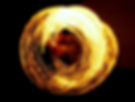Chaos & Creativity: A Conversation Between Jacob Collier and Simon Sinek
- Gina Greenlee, Author
- Jul 27, 2025
- 7 min read

I’ve recently discovered the deeply reflective mind of Jacob Collier and have binged his online conversations. At the same time, I’ve been obsessed with chaos as a tool in art and in life. How delightful then to have part of this hourlong conversation address my latest focus. Below is the relevant excerpt.

Jacob: A question I wanted to pose to you is this idea of the completely irrational mind, which as a creative person all of us have a relationship with. There is a part of us that can rationalize. I can say, “okay when I’m in the key of F I do this.” Or “here’s how the audience works.” Or “here’s how I think about my next whatever.” But still, when I stand on stage or sit on stage and do it, there is a part of me that does not respond to any amount of data or analysis that I could possibly have done. I’m curious how you feel about the cultivation of that part of you that is just an animal and doesn’t want to be put into a box. You could almost say you enjoy being disobedient with regard to what is defined as –

Simon: – okay, you’re opening a Pandora’s Box. I define creativity as finding order in chaos.
Jacob: Finding order in chaos, right.
Simon: So, I would argue that 88 keys on keyboard is chaos in itself. Take somebody – a baby – who doesn’t know the keyboard and they bang it. Chaos. And finding order in that chaos is what we call music, creative expression. I think artists inherently have a comfortable relationship with chaos.
Jacob: Yeah, I would say so, too.
Simon: And I would argue that chaos is irrational. We seek order; we seek rational; we seek rules and structures and explanations – that’s all that rational stuff. The irrational, the emotional, the uncomfortable, the unscripted, the unknown, the uncertain, is where the artist plays. And I think great artists understand that what they do is play.
Jacob: Yeah.

Simon: We’re playing with pieces of a puzzle. Mine might be words and ideas; yours might be keys on a piano, somebody else’s might be colors. And we become facile in our own language.
Jacob: Yeah.

Simon: And the example I’ll give is – have you ever hung out with dancers?
Jacob: Dancers, yeah.
Simon: I’ve gone to watch friends choreograph pieces. And the choreographer will demonstrate something. They’ll be like, “do this and this, then this, then this, then I want you to go here – bop, bop, bop – then I want you to do this. Actually, no. Don’t. Do this, do this, then do this. And all the dancers, the whole room, do it exactly, after they were shown once and there was a change in the middle. And I can maybe remember the first two. And I was like but? How? Huh? And you realize it’s a language.
Jacob: Yeah.
Simon: If you say to me repeat the sentence, “three balloons flew up into the sky and one of them burst and fell down to the ground.” I could go quite a while and repeat it all because I understand the language.
Jacob: you understand the context for all the nuggets so –

Simon: I know how the pieces relate, and I can put them together without any rehearsal. You speak that language (points to piano) and I speak this language (points to self), and they speak that language (points in a different direction).
◊ ◊ ◊
Jacob: Sure. You spoke about creativity as finding order in the chaos. But I also think an important part of making art is a different thing from following the instructions of the choreographer or playing the parts as an orchestra member.
Simon: Yeah.
Jacob: As the maker of an idea, there is also this concept of finding chaos in the order. We all have this feeling, I think, of going through rules and regulations – self-imposed and gatekeepers – our own structures that we’re trying to resist, other people’s structures that we’re trying to resist. In my situation, the music industry is a very strange and nauseating place at times. And you think, okay I’m going to take this rigidity and I’m going to scuff it up. That’s creativity. So, you’re almost finding your way back to the chaos…
Simon: …yeah, yeah.
Jacob: but I think one thing that people do –
Simon: – when it gets too ordered you have to break it.
Jacob: Exactly. I guess what I’m wondering, what I’m challenging is does the nature of creativity also go the other way?
Simon: That’s a great insight.
Jacob: Is it just when creativity transforms to order or is it also vice versa?

Simon: I agree with you: I think it’s a cycle or a circle. If you take the infrastructure that exists, you take the system that we reject, and we rebel and we break it. It’s not enough to break it. You have to rebuild it back.
Jacob: Exactly.

Simon: I think you’re right. I think creativity is the duality of chaos and order. When there’s excessive order, the artist seeks chaos, and when there’s excessive chaos the artist finds order.
Jacob: I kind of like that. I would also say, and here’s an interesting analogy that has to do with creativity but also different is AI (Artificial Intelligence). AI asks us to ask questions. That’s our fundamental way of interfacing with it. The more interesting the question, the more interesting the result you’ll get. And it’s an interesting process of whittling away through deeply uninteresting things, like mortally uninteresting results, to get something that’s actually interesting. and I’ve spent so many hours, for example, just generating images. I spoke earlier about colliding unusual stuff. It’s a beautiful place.
So, here’s the interesting thing about music and high resolution (AI): people think when you learn music, the more you trained the better you’re going to get: NOT TRUE. because whilst your technique can be refined, the friction you get between understanding exactly what a thing is and not understanding exactly what a thing is – that’s where the most creativity happens. Because the most amount of change happens between order and chaos.
Simon: This is brilliant. So, the whole Malcolm Gladwell 10,000 hours, right?
Jacob: Yeah.
Simon: And this is what we’re touching on.
Jacob: Yeah.
Simon: Which is the more you gain mastery what ends up happening is ossification.
Jacob: Yes, exactly.

Simon: I look at people who are quote unquote “experts.” They’ve been doing this for 20 year, 30 years 40 years – they are the best. And you realize they’re stuck. You realize that they’re bored –
Jacob: – stagnated.
Simon: You realize that they are either afraid of change, don’t understand how to change, or the money or fame is too good, and they don’t want it to change.
Jacob: Threatened.
Simon: Yeah threatened. But generally, the feeling of boredom is there because they’ve done it so much. The joy was figuring it out, up to 10,000 hours. And so, I think you’re 100 percent right. Mastery I think, probably, is a devil to a true creative.
Jacob: There are there are different kinds of mastery, though, I would say. You can master, for example, the technique of something, the execution of it. You can also exhibit mastery by your ability to create containers. And this is the thing I’m currently obsessed with mastering.
I’ve always required the right container for my creativity to feel safe within. If you pour creativity into the open air, it just fizzles and disappears. Or there's too much Infinity. So, what you need is a container that holds you together and this I think is something you can master.
Simon: What’s your container?
Jacob: Well, it could be a song, could be an album, could be a stage, could be a lyric, could be a collaboration…

Simon: …but I think this is right, which is, though creatives are comfortable in chaos they don’t reject order until it’s time to reject the order.
Jacob: This this comes back to the irrational.
Simon: Because you can’t just improvise forever and have that be satisfying to you or the people listening to you.
Jacob: Without input.
Simon: We do want a container – to your point. We want the song to be, you know, three minutes-ish.
◊ ◊ ◊

Jacob: What is it that keeps you being tickled? I guess the question is how does one stop entering into what you described just now of stagnating, of getting stuck and of getting bored – just sort of recycling the same old ideas? How do you keep someone sharpened? To my mind it’s something about changing the container.
Simon: It goes back to the conversation we had before. I have gone through periods of boredom and stagnation, and “oh my God I’m out of ideas.” I’ve had all of that.
Jacob: So, if you had to say it in reductive terms, how have you got out of those?
Simon: It’s what you said, which is I have to break something.
◊ ◊ ◊
As artists, we cannot create order without first managing chaos. We are continually confronted with it in our process. Dayna Talbot
◊ ◊ ◊
The irrational, the emotional, the uncomfortable, the unscripted, the unknown, the uncertain, is where the artist plays. Simon Sinek
